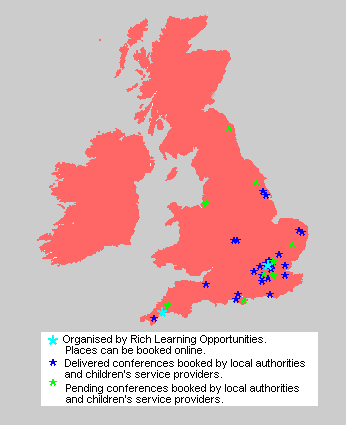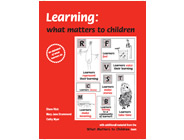|
Conferences audiences Conferences are designed to suit the needs of individual clients. Audiences previously addressed include: headteachers, managers, senior advisory staff, school staff, foundation stage educators, private voluntary and independent sectors, childminders, play workers, community workers and many more. A specific conference focus A conference may have a specific focus, for example: creativity, speaking and listening, inclusion and many more. Whatever the focus, the key principles below will be underpin each conference, inset cluster and further professional development session. Day conferences with workshops Conference principles All days are underpinned by the principles which underpin the work of the What Matters to Children team. These are the basis of effective learning and teaching and include
© Rich Learning Opportunities and the What Matters to Children team 2007Conference workshops Workshops explore the ‘food and exercise’ of children’s learning, the big ideas they encounter, questions worth asking and what matters to children. Workshops are delivered in two-parts.
At two-day conferences a third workshop may involve exploration of the outdoors. © Rich Learning Opportunities and the What Matters to Children team 2007Sample programme
9.00-9.30 Arrival/coffee/registration 9.45 Key note presentation 1 First hand experience: what matters to children10.30-11.00 Refreshment break and move to workshops11.00-12.30 An alphabet of learning from the real world (workshop session)
12.30-1.30 Lunch
3.00 Refreshment break and return to hall3.20 Key note presentation 2 A is for afterwards 3.50 Conference close/evaluation/depart 4.00 End Further professional development days *Further professional development days with workshops can be designed for those who have attended First hand experience: what matters to children conferences at the Science Learning Centre for the East of England or elsewhere in the UK.
|



